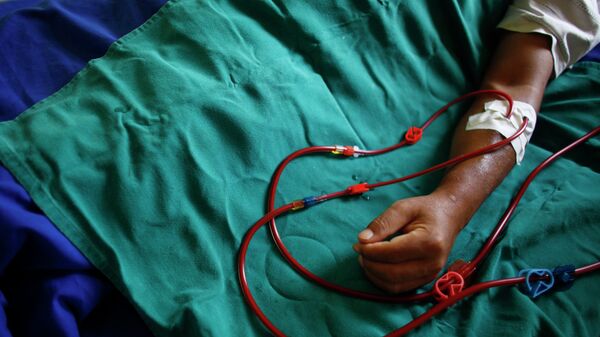ISIL militants have apparently set up an organ trade scheme in at least one city of their controlled territory.
In order to make it work Islamists hired foreign surgeons who operate in local facilities in the Iraqi town of Mosul. This is according to Al-Monitor, who cite local otolaryngologist Siruwan al-Mosuli as their source.
The doctor reportedly told Al-Monitor that these specialists are instructed to work away from local surgeons and are only busy with removing and properly storing human organs for transport. The organs are believed to come from recently killed or severely injured jihadists, who get quickly transported from the frontline, as well as from kidnapping victims.
Dr. Mosuli added that the scale of this gruesome business may be enormous as it involves a long chain of traffickers and medical institutions in other countries.
It could be extremely lucrative as well – for example, the price of a kidney on the black market may vary from several thousand to tens of thousands of dollars.
The real numbers of victims and the turnover of the brutal trade remain unknown, but it is definitely a part of ISIL’s revenue stream, estimated to be around $2 billion a year.
The other major sources of income are illegal oil trade, drug smuggling, human trafficking, kidnapping, various fees and charges on local population and private donations from all over the world.
All of this makes it that much harder for the US-led coalition against ISIL to succeed. So far, fighting money with money hasn’t worked well. No banks suspected of working with ISIL have been asked (or forced) to close their accounts or reveal the account information. And the cost of airstrikes aimed at destroying ISIL strongholds is expected reach $4 billion by the end of the year. So while allies spend, ISIL profits — which could dangerously shift the already brittle balance of power in the region.




